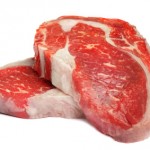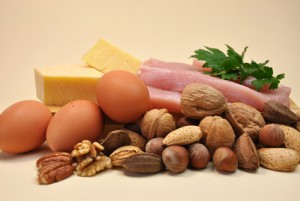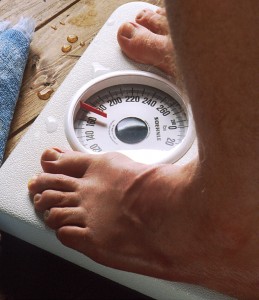Is Everything We Thought We Knew About Fats Wrong?
Author: Dr. Stephen Chaney
 Bring out the fatted calf! Headlines are proclaiming that saturated fats don’t increase your risk of heart disease – and that they may actually be good for you.
Bring out the fatted calf! Headlines are proclaiming that saturated fats don’t increase your risk of heart disease – and that they may actually be good for you.
The study (Annals of Internal Medicine, 160: 398-406, 2014) that attracted all the attention in the press was what we scientists call a meta-analysis. Basically, that is a study that combines the data from many clinical trials to improve the statistical power of the effect being studied.
And it was a very large study. It included 81 clinical trials that looked at the effects of various types of fat on heart disease risk.
Are Saturated Fats Good For You?
The answer to this question is a simple No. The headlines suggesting that saturated fats might be good for you were clearly misleading. The study concluded that saturated fats might not increase the risk of heart disease, but it never said that saturated fats were good for you.
In short, the study concluded that:
- Saturated fats, monounsaturated fats and long-chain omega-6 polyunsaturated fats did not affect heart disease risk.
- Long chain omega-3 polyunsaturated fats decreased heart disease risk [Note: The original version of the paper said that the decrease was non-significant, which is what the headlines have reported. However, after several experts pointed out an error in their analysis of the omega-3 data, the authors corrected their analysis, and the corrected data show that the decrease in risk is significant.]
- Trans fats increased heart disease risk
If those conclusions are correct, they would represent a major paradigm shift. We have been told for years that we should limit saturated fats and replace them with unsaturated fats. Has that advice been wrong?
Is Everything We Thought We Knew About Fats Wrong?
Before we bring out the fatted calf and start heaping butter on our12 ounce steaks, perhaps we should look at some of the limitations of this study.
We Eat Foods, Not Fats
When the authors broke the data down into the effects of individual saturated and unsaturated fatty acids on heart disease risk some interesting insights emerge.
For example, with respect to saturated fats:
- Both palmitic acid and stearic acid – which are abundant in palm oil and animal fats – increased the risk of heart disease.
- On the other hand, margic acid – which is more abundant in dairy products – decreased the risk of heart disease.
 So while the net effect of saturated fats on heart disease risk may be zero, these data suggest:
So while the net effect of saturated fats on heart disease risk may be zero, these data suggest:
- It is still a good idea to avoid fatty meats, especially red meats, if you want to reduce your risk of heart disease. When you focus on foods, rather than fats this fundamental advice has not changed in over 40 years! In next week’s “Health Tips From the Professor” I will share some of the latest research on the dangers of red meat.
- With fatty dairy foods the situation is a little more uncertain. I’m not ready to tell you to break out the butter and whipped cream just yet, but recent research does suggest that dairy foods have some beneficial effects that may outweigh their saturated fat content.
With respect to omega-3 fatty acids:
- alpha-linolenic acid – which is found in vegetable oils and nuts and is the most abundant omega-3 fatty acids in our diets – had no effect on heart disease risk.
- On the other hand, EPA and DHA – which are found primarily in oily fish and omega-3 supplements – decreased heart disease risk by 20-25%.
Once again, while the net effect of omega-3 fatty acids on heart disease risk was very small, that’s primarily because most Americans consume mostly alpha-linolenic acid and very little EPA and DHA. This study shows that fish oil significantly reduces heart disease risk, which is fully consistent with the heart healthy advice of the American Heart Association and National Institutes of Health over the past decade or more.
What We Replace the Fats With Is Important
A major weakness of the current study is that it did not ask what the individual clinical trials were replacing the fatty acids with. Many of them were simply replacing the saturated fats with carbohydrates. To understand why that is important, you have to go back to the research of Dr. Ancel Keys.
The whole concept of saturated fats increasing the risk of heart disease is based on the groundbreaking research of Dr. Ancel Keys in the 50’s and 60’s. But, it is important to understand what his research showed and didn’t show.
His research showed that when you replaced saturated fats with monounsaturated fats and/or polyunsaturated fats the risk of heart disease was significantly reduced. He was the very first advocate of what we now call the Mediterranean diet. (He lived to 101 and his wife lived to 97, so he must have been on to something.)
Unfortunately, his diet advice got corrupted. The mantra became low fat diets, where the saturated fat was replaced with carbohydrates – mostly simple sugars and refined flours. Since diets containing a lot of simple sugars and refined flours also increase the risk of heart disease you completely offset the benefits of getting rid of the saturated fats.
Just in case you think that is outdated dietary advice, Dr. Key’s recommendations were confirmed by a major meta-analysis published in 2009 (American Journal of Clinical Nutrition, 89: 1425-1432, 2009). That study showed once again that replacing saturated fats with carbohydrates had no effect on heart disease risk, while replacing them with polyunsaturated fats significantly reduced risk.
The Bottom Line:
You can put the fatted calf back out to pasture. The headlines telling you that saturated fats don’t increase the risk of heart disease were overstated and misleading. This study does not represent a paradigm shift. In fact, when you analyze the study in depth it simply reaffirms much of the current dietary advice about fats.
1) When you simply replace saturated fats with carbohydrates, as did many of the studies in the meta-analysis that generated all of the headlines, there is little or no effect on heart disease risk. However, other studies have shown that when you replace the saturated fats with monounsaturated and polyunsaturated fats you significantly reduce heart disease risk.
In short, if you are interested in reducing your risk of heart disease, low fat diets may be of relatively little value while Mediterranean diets may be beneficial. No paradigm shift there. That sounds pretty familiar.
2) Fatty meats, especially red meats, appear to increase the risk of heart disease. No surprises there.
3) Alpha-linolenic acid, the short chain omega-3 fatty acid found in nuts, seeds and vegetable oils, does not decrease heart disease risk. However, EPA and DHA, the long chain omega-3 fatty acids found in fatty fish and fish oil supplements significantly decrease heart disease risk. That’s probably because the efficiency of conversion of alpha-linolenic acid to EPA & DHA in our bodies is only around 10%. No surprises there.
4) The study did suggest that dairy foods may decrease heart disease risk. While there are a few other studies supporting that idea, I’m not ready to break out the butter and whipped cream yet. More research is needed.
These statements have not been evaluated by the Food and Drug Administration. This information is not intended to diagnose, treat, cure or prevent any disease.



